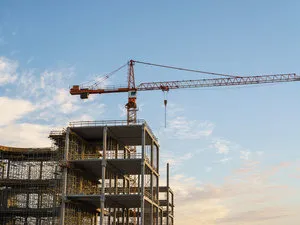
Wisconsin lawmakers are again attempting to delay the enforcement of updated commercial building codes, citing industry strain and implementation challenges. Assembly Bill 450, introduced by a group of Republican legislators, would postpone enforcement of the new codes until April 1, 2026, offering builders and municipalities additional time to make the transition.

The Department of Safety and Professional Services (DSPS) initially planned for enforcement of the updated commercial building code—based on the 2021 International Building Code (IBC)—to begin on August 1. After pushback, the department moved the deadline to October 1 and then again to November 1. Now, legislators argue that the new standards still pose logistical and financial obstacles for active and upcoming projects.
Under the proposal, the updated code would not apply to any “public building, public structure or place of employment” if the plans are reviewed by DSPS or a local municipality by April 1, 2026.
During a public hearing before the Assembly Committee on Housing and Real Estate, co-sponsor State Sen. Rob Hutton (R-Brookfield) warned about the risk of disrupting ongoing developments.
“Allowing such a setback to be dealt to building projects throughout the state is especially concerning at a time when the cost of housing has risen out of reach for far too many Wisconsin citizens and more supply is desperately needed,” he said.
Hutton and State Rep. Amanda Nedweski (R-Pleasant Prairie) sent a letter to DSPS Secretary-designee Dan Hereth urging the state to delay enforcement until the 2026 construction season. The letter has garnered signatures from 24 legislators.
“Construction, like many industries, is being challenged by inflation, lack of skilled workers, and supply chain issues,” the lawmakers wrote. “Unlike other industries, Wisconsin construction is also dealing with the new commercial building code that is suddenly in effect during the height of the 2025 construction season.”
They argue that pushing the deadline forward would prevent developers from scrapping existing plans and allow projects already underway to move ahead without costly revisions.
In a separate statement, Nedweski emphasized the urgency of action. “By enforcing this new commercial building code in the middle of peak construction season, builders and contractors will be hit with significant cost increases that may force them to either delay or suspend ongoing projects,” she said.
She continued: “The letter that myself and Sen. Hutton are circulating simply asks DSPS Secretary-designee Hereth to delay enforcement of the new commercial building code until April of 2026, rather than imposing new requirements in the middle of peak construction season.
“I’m cautiously optimistic that Secretary-designee Hereth will listen to our request, as DSPS has already delayed implementation of this new code twice,” Nedweski added. “This isn’t — or shouldn’t be — a partisan issue. Every legislator, Republican or Democrat, has ongoing projects in their district that will provide a benefit to their constituents. It’s in everyone’s best interest that these projects go on as scheduled without additional complications or costs.”

The enforcement of the 2021 IBC in Wisconsin stems from the July State Supreme Court ruling in Evers v. Marklein II, which invalidated the legislature’s ability to block administrative rules via “legislative veto.” The court’s decision cleared the way for DSPS to move forward after years of delay.
While the legal hurdle has shifted, industry professionals say practical implementation requires time, guidance, and training.
Middleton developer Terrence Wall, president of T. Wall Enterprises, said many in the field are still trying to catch up.
“Quite frankly, DSPS needs the time to properly and in an organized manner, implement the new code and have time to train its own code reviewers,” Wall said. “Remember, many code reviewers are located in different cities across the state and they don’t know what the new code changes are or how to interpret or enforce those changes.”
DSPS officials have not commented directly on the pending legislation. However, after the agency most recently shifted the deadline to November 1, Secretary Hereth acknowledged the impact of past delays.
“We want to be good partners to Wisconsin’s building professionals,” Hereth said. “The process to develop this code experienced delays beyond usual rulemaking, including legislative tactics that stalled progress and the resulting court proceedings. As a result, this is the first upgrade to this code in a decade and represents a big change for the industry. So, to ensure a smooth transition for our partners in the building industry, we are granting an additional grace period for project submittals.”
DSPS has also clarified that certain supplemental systems—such as alarms, HVAC, fire suppression, elevators, boilers, and refrigeration—may follow the codes in effect at the time of plan approval. For example, a project reviewed under the 2015 code may continue using those standards for associated systems.
As the bill advances, lawmakers, developers, and builders are watching closely to determine whether another extension will be granted—and how it could affect projects scheduled for the 2025 and 2026 construction seasons.
Originally reported by Ethan Duran in The Daily Reporter.